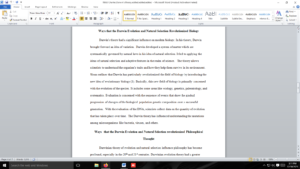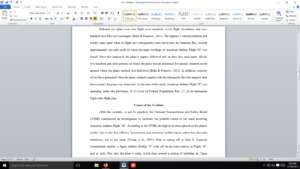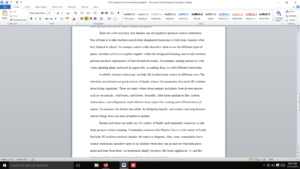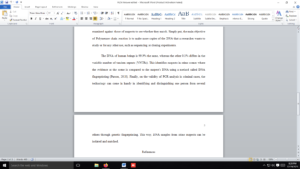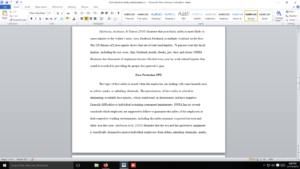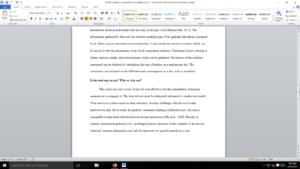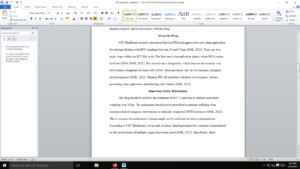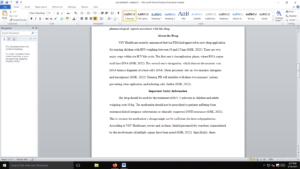The goal of this assignment is to get you into a brick-and-mortar or virtual museum of any kind.
Essay Description:
The full essay should be a well-organized and developed review. It should lead with an introduction that asserts the value or significance (this is akin to your thesis), of the museum or of the exhibit follow with body paragraphs that answer explores essential points (listed below), and conclude by recommending the exhibit to a specific audience, noting the duration of the exhibit and the best times to visit it. The body of the essay should feature your criticism–descriptive, interpretive, or evaluative–of a few key pieces of art. When you discuss these examples, draw from your vocabulary chart. Use and highlight the language of the art you are perceiving. Five or more vocabulary words must be used and highlighted in your final essay.
Essential points:
There are three essential points: organization, unity, and surprise. The questions following each point are meant to stimulate your thinking and help you write developed paragraphs. You can use all of them, some of them, or come up with your own ways to address organization, unity, and surprise. You can also write about a point you’d like to address in addition to the three listed.
1. How well organized is the exhibit—how easy is it to navigate? How helpful are the instructional materials? Does the exhibit use technology in interesting ways? Support your discussion here with references to specific examples.
2. Can you determine the unity of the exhibit—what unifies the items or do the pieces create a unified collection? Does viewing the whole collection illuminate individual pieces? If so, discuss one or two pieces that are best viewed as part of this collection. If not, address the shortcoming that prevents “illumination.”
3. What about the exhibit surprised you? Did you appreciate any element more because you were viewing the art in person rather than online or from a book? Was any piece more impacting than you expected? Did the exhibit feature a masterpiece you weren’t expecting to see? Did the exhibit end as you expected or include what you expected? Which piece demanded your participation? Support your discussion with descriptions of and references to specific art.
4. Any other point you’d like to address concerning the exhibit.
Outline Model:
- Introduction: Begin with a statement about the value or significance of the exhibit or museum.
- Support your value statement with a specific. (Who will benefit from visiting this exhibit? Scholars? Locals? Anyone interested in______?)
- Support your value statement with another specific. (Will the exhibit be important in ten years? 100 years? Does it add to the community? Does it fill in a gap in scholarship? Recover pieces that haven’t been seen before? Create any kind of understanding? Does it demand participation?)
- Body: Address the essential points.
- Discuss essential point one (see points below).
- Discuss this point by referring to and commenting upon an example or two. Indicate any vocabulary term you will apply here.
- Discuss this point by referring to and commenting upon a second example or two if helpful. Indicate any vocabulary term you will apply here
- Discuss essential point two.
- Discuss this point by referring to and commenting upon an example or two. Indicate any vocabulary term you will apply here
- Discuss this point by referring to and commenting upon a second example or two if helpful. Indicate any vocabulary term you will apply here
- Discuss essential point three.
- Discuss this point by referring to and commenting upon an example or two. Indicate any vocabulary term you will apply here
- Discuss this point by referring to and commenting upon a second example or two if helpful. Indicate any vocabulary term you will apply here.
- Discuss any other point you’d like to address.
- Conclude with an audience recommendation.
- Recommend the exhibit/museum to a specific audience.
- Provide the museum/exhibit specifics, such as time, duration, and location.
Requirements: 4-5 pages
Answer preview
Throughout the tour, the visitors are exposed to the history of the space center, space discoveries, and important observations to make. For instance, a tour at the Space Garden gives visitors insight into the US space’s journey as one can explore the space shuttles that kickstarted space exploration in the United States. For example, the garden has the rockets of the Gemini, Apollo, and Mercury NASA programs. Through the help of a guided tour, the visitor is walked through the history of early rocket science and the contributions of the early scientists and engineers (Kennedy Space Center, 2022). The artifacts in the Space Garden signify the incredible history and the development of the US space world. Each artifact presents an improved version of the previous one regarding technological advancements and adventure into a new mission.
[1250 Words]
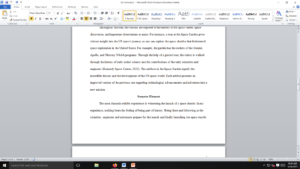
Futuristic world of space technologies and exploration

